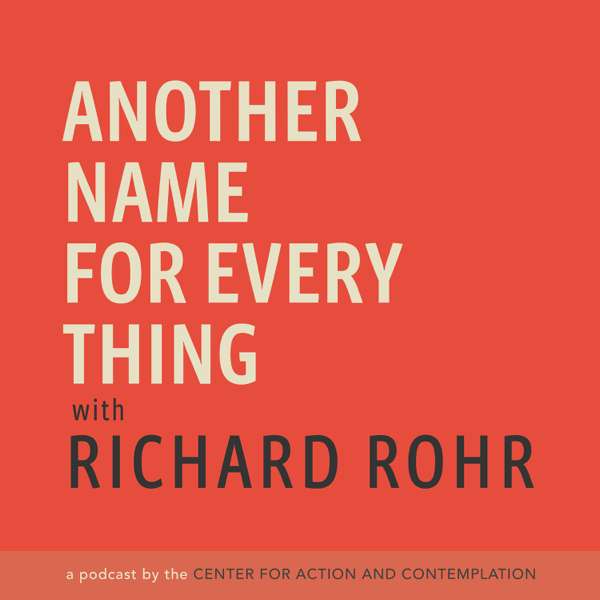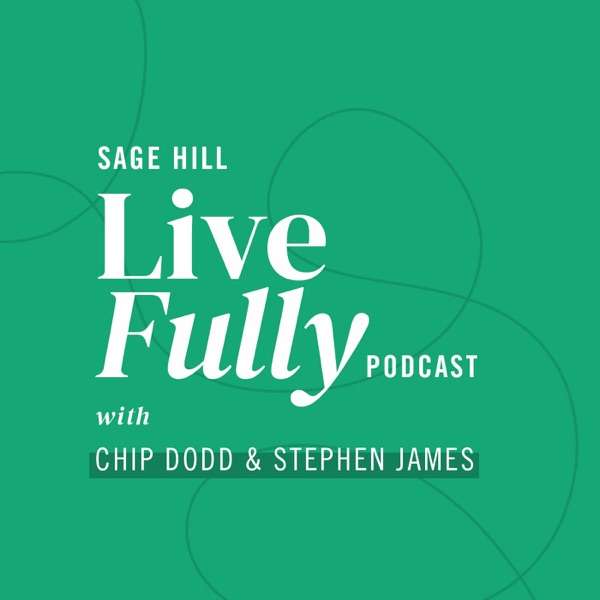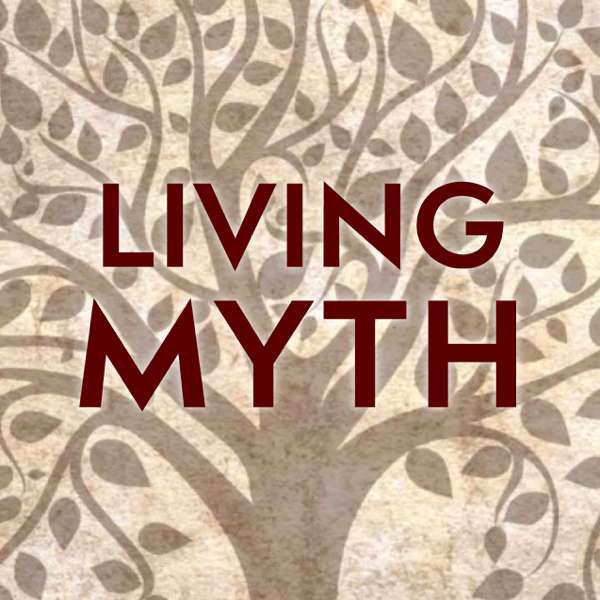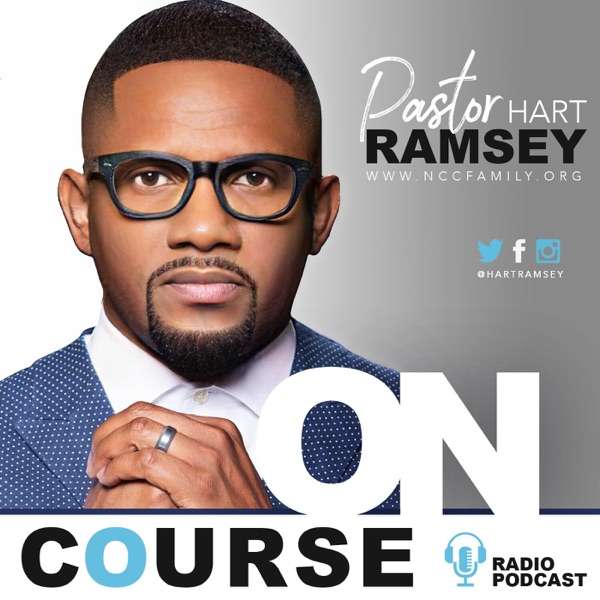This Week Britt & Bill take a look as various data including the Pew Research Data and try to extrapolate some of the shifts away and beyond from past generations, that Generation Z is making. How are they different from their parents and Grandparents and how healthy or unhealthy might these shifts be. And where do they fall in their trust and loyalty to religious systems and systems generally.
SLIDE SHOW
SLIDE 1
Who is Gen Z
Generation X is anyone born from 1965 to 1980.
- Baby boomers are anyone born from 1946 to 1964.
- Millennials are anyone born from 1981 to 1996.
- Generation Z is anyone born from 1997 to 2012.
- Born 1997-2012
SLIDE 2
Sexually Fluid
Racially Diverse
25% of the population
Biblically Illiterate
Dreams to:
Become Financially independent
Follow their dreams
Enjoy life and travel
Learn who they are
Internet
57% use their phones more than four hours a day, with phones being on their person close to 100% of the day. Their worldview, overall, is highly inclusive and individualistic based on the time that they spend hearing the stories and experiencing the lives of thousands of others online. While this can turn into a kind of moral relativism, it is based on the idea that other people’s experiences are valid. Their perspective includes the entire world all the time in the palms of their hands.
“As the most racially, religiously, and sexually diverse generation in American history, Gen Z expects people to have different beliefs and experiences, and they seem to have a greater appreciation for social inclusiveness.”
Family is not important to sense of self (Safer to Individuate)
Another defining characteristic is that although they admire their relationships with their parents with more than half saying that they parents are their primary role model, “most don’t feel family relationships are central to their sense of self – a major departure from other generations.”
Wide variety of friends (Safer to be Accepting and Inclusive)
Almost half of them are friends with those who are vastly different from them, as opposed to their grandparents who rarely had to rub elbows with people who had life experiences that would cause cognitive dissonance or pushback to their own beliefs. Their access to the variety of human experience is wider than any previous generation can fathom, making them less dependent on their family or tribe for their way of life.
High Anxiety
Underneath this expansive worldview lies insecurities as well. There is pressure to find themselves as people and become financially successful. Gen Z has come of age in a post-9/11 nation reeling from the 2008 recession, and many teens are anxious about their future. Their goals revolve around professional success and financial security, and a majority says their ultimate aim is “to be happy” – which a plurality defines as financial success.
It is very important for this generation to carve out their unique, financially secure, and authentic space in a very confusing and shifting world. Social media allows them to create networked communities where they actively take part in self-expression and identity formation. However, there is a cost. The pressure of matching their real life to what others post online can exacerbate loneliness, depression, fear of missing out, anxiety, and especially body image issues for young women. Insecure, young brains seeking identity and meaning in a secular, materialistic, perfect looking online world is going to be the challenge they have to overcome. According to psychology professor Jean Twenge, “this generation is on the verge of the greatest mental health crisis in decades.”Beneath the online veneer of happiness lies deep loneliness, anxiety, and stress.
How are Gen Z different than other generations?
Gen Z and Religion
Gen Z is Leaving Organized Religion
SLIDE 3
A variety of studies report that 50 to 70 percent of young Christians walk away from the church by the time they are in their college years
79% of young people say that when they stop believing, it was during their teen years
SLIDE 4
4% of Gen Z have a Biblical Worldview (They sense the absurdity of that view and don’t give it the time of day or are not raised with it imposed on them)
James White, in his groundbreaking book Meet Generation Z, notes the most defining mark of members of Generation Z, in terms of their spiritual lives, is their spiritual illiteracy…They do not know what the Bible says. They do not know the basics of Christian belief or theology. They do not what the cross is all about. They do not know what it means to worship. This isn’t a generation that is contained by holy writ, dependent on an interventionist God, or interested in classical forms of worship that focus on hoops to jump through towards salvation.
Why do they leave?
SLIDE 5
Researchers have been asking young ex-Christians why they leave the church, and their answers are worth consideration. Here are some of the most popular responses based from four different studies:
Some stuff is too far-fetched for me to believe (Notice the increased degree of critical thinking skills likely due to technology and the ease of accessing information)
Too many questions can’t be answered
I believe in science and not miracles
I realized the story was like Santa or the Easter Bunny
I have a hard time believing that a good God would allow so much evil or suffering in the world
I had a bad experience at church
I don’t see women, people of color, and LGBTQ people treated kindly at Church.
59% of Gen Z’ers report that the Church is not relevant to me personally
61% of Gen Z Christians also report that they find God elsewhere
It is important to note that the majority of even Christian Gen Z teens walk into church and cannot find God there more than they can outside of the church. But when asked about specific beliefs around God or Jesus, they are more likely than not (although less than other generations) to hold to Christian teachings about God and Jesus. (They see value beyond the myth having to be understood literally)
60% of Gen Z youth believe that Jesus was a real person who was actually raised from the dead and 70% believe that Jesus is the Son of God. This is surprising considering that only 25% believe that the Bible is accurate in all of the principles it teaches. So while belief in the literal truth of the Bible, church attendance, or that there is “only one true way” is too difficult a belief to maintain in light of modern science, technology, and multiculturalism, it seems that Gen Z has not thrown God and Jesus out with the bathwater.
SLIDE 6 – NON CHRISTIANS BARRIERS TO FAITH
SLIDE 7 Rise of the Nones
American religion is experiencing its own unique flock away from the Pews. In 1986, 10% of young adults gave the answer to “none” when responding to a survey about religious affiliation. By 2016, that figure had shot up to 40%. (Due to their answers in the last section, it seems they are insisting that the Church doesn’t match their values and expectations and have looked for connection and awe in other places)
For the first time in American history, Protestant Christianity does not represent that majority of Americans. In 2009 51% of U.S. adults identified with Protestantism, whereas only 43% currently identify
The pace of this decline will only quicken in the years ahead now that Generation Z has established itself as the most non-Christian in US history. While not all “nones” are atheists, 13 percent of Generation Z clearly identify as atheists compared to 4 percent of boomers.
SLIDE 8 Politics Affects Religion in the 1990’s
Young Liberal Christians break from Christian right in the early 1990’s after a decade of observing its powerful role in conservative politics
According to Christian Smith, sociology and religion progressor at Notre Dame, the story of the rise of the religious right begins in the 1970s. With the rise of secular culture in the 1960s, the Roe vs. Wade decision, no fault divorce laws, universities losing tax-exempt status over their ban on interracial dating, and the sexual revolution Christians felt threatened and became more politically active. The Republican Party welcomed this white, wealthy, conservative group as its base. Within a decade, the religious right had become the major fundraisers for the Republican Party. By 1980, the GOP social platform represented conservative Christian views on sex, families, abortion, school prayer, evolution, and other issues where Christians had a dog in the fight.
Not all countries have an Atheist Left and a Christian Right, Christianity has both Left and Right Values, but that is how it developed in America.
Another reason for the shift – after 9/11, the enemy wasn’t the Godless communists of the USSR, it was Religious radicals, so “nones” could come out of the closet without sounding like Soviets
During George W. Bush’s presidency, Christianity’s association with unpopular Republican policies and an unpopular war drove young liberals and moderates away from the Church. What we begin to see is a gap between liberals and conservatives in religious affiliation. Although it would be wrong to call Democrats a secular party, the left now has a higher share of religiously unaffiliated voters than any time in modern history.
David Campbell, professor and chair of the University of Notre Dame’s political science department has said that a reason for religious decline is an “allergic reaction to the religious right.” The result is that the mixture of politics and Christianity threatens the long-term sustainability of religion in America.
SLIDE 9 Distrust of Authority (Religion depends on you trusting the outer authorities of your tribe and to devalue the merit of views from authorities outside your tribe. But in an information age, with ease of access people are giving weight to merit over loyalty)
This group has significant trust issues when it comes to formal religious institutions. Asked to rate their trust of organized religion on a 10-point scale, 63% of young people answered 5 or below, including 52% of those who say they’re affiliated with a religious tradition.
SLIDE 10 Affect of Covid on Gen Z
Pew Research Center also reports that three in ten U.S. Adults say the outbreak has boosted their faith, the highest of any industrialized nation, with four in ten saying that it tightened their family bonds. It is common that during times of calamity there is an uptick of religious observance. What makes this a unique calamity is that instead of gathering with friends, family, and faith community, the pandemic required separation.
After 9/11, there was a great deal of evidence that immediately after the attack there was a surge in houses of worship being filled to capacity. But one year later, the statistics returned to what they were before. This emergency is different, churches closed and teens got used to not attending a house of worship. Early surverys show this increases Gen Z leaving the Pews specifically.
SLIDE 11 Covid affected family ties, youth more likely to say it increased family bonds
SLIDE 12 Gen Z – Reject that there is one way, religion is not important
“Gen Z has rejected the way religion has sought to shape their forms of gender and sexual identity and expression,” Hedstrom said. “If the religion of my parents tells me there is a certain ‘right’ way to be a woman, or to be a sexual person, and I reject that one ‘right’ way, then I might very well also reject the religion that promoted it, and seek alternative religious, spiritual, or secular ways of being and belonging.”
According to Pew Research Center data, more than 50 percent of teens in the United States ages 13 to 17 identify with the religion—or lack of religious affiliation—of their parents, yet there’s a marked difference between the age groups when it comes to whether they consider religion important in their lives: 24 percent of teens say it’s very important while 43 percent of their parents described it that way. (As Importance is diminished, folks will feel safe to explore other sources of truth, spirituality, awe, wisdom, etc…)
SLIDE 13
Do not rely on tradition for rituals
Though 75% of Gen Zers surveyed in 2019 said they have a religious background, only 18% said they planned to observe formal religious traditions at their wedding, while nearly 87% saw themselves making their own traditions (They no longer value its authority. These rituals are no longer “The Way”)
Gen Z resists being called to fall in line (Feel empowered to dissent – their inner authority is stronger than their parents, grandparents)
For some, the path is set and it is only the job of Gen Z to fall in line, such as what we find in this quote from Jody Tadros who developed a Gen Z curriculum of discipleship:
“What distinguishes pastors is that God commissions them to teach His truth to His people, the church. They are the voice of absolute truth in a world that is contrary to it. Gen Z is a generation living in a world that pushes God away, making them thing that God is an option rather than the only way, the truth, and the life. It is for this reason, the church, especially pastors and teachers of the word of God are key in denouncing these heretic beliefs in a world going further away from the Biblical truth of Jesus Christ.”
SLIDE 14 Gen Z in need of leadership
Though they may not be turning to churches as often, young people still need adults in their lives, including pastors, to guide them during challenging and uncertain times.
In last year’s State of Religion and Young People 2020, Springtide found that as the number of trusted adults in a young people’s life increased, the level of loneliness and purposeless they feel decreased. While 24% of young people with no adult mentors say they never feel their life has meaning and purpose, with just one adult mentor, this number dropped to 6%. A similar trend held true for loneliness — while 58% of those with no adult mentors say they sometimes or always have no one to talk to, this number dropped to 48% with just one adult mentor.
How does Gen Z find adult mentors they can trust? (You have to place yourself in spaces where such voices are)
End of Slides
Gen Z Values
Generation Z, currently between the ages of nine and 24, is leading the fight against racial injustice, bringing about climate change awareness and legislation, and dismantling the systems that perpetuate historical disadvantages. By no means are we the pioneers of religious taste-testing—sampling, as many of us do, a wide variety of religions and spiritual practices—but we are certainly unafraid to vocalize our deconstruction of religious principles, hold them up to the light, and distance ourselves from the teachings that misalign with our values.
4 major values
Diversity
Pastor Zach Lambert, of Restore Austin, a nondenominational church, reports that since the pandemic began youth engagement was highest when a Black staff member hosted a Zoom discussion about racial bias. “We had a ton of young folks on that call,” Lambert says. “That was really their main church participation since COVID hit.” Imagine Christian churches in the 1950’s hosting a Black member of the congregation speaking to the community about their experience. It’s almost unheard of, and that deserves to be noted. When it comes to who sits with the marginalized, outcasts, sex workers, and second-class citizens as Jesus did, it is Gen Z that is the hero. They are the most willing to sit with someone, hear their story, mourn with those that mourn, carry people’s crosses, and stand against injustice. What is merely lacking here is the trepidation from Christians to call their social justice projects and protests “Christian,” when indeed it is.
Right Wing Politics driving Youth away from Christianity
Openness
Gen Z do not debate Bible verses or lose their faith doing deep dives into philosophy and theology. They don’t have the same theological baggage. They are open to redefining Christianity and religion without requiring much work to get there. (One way or another they are able to avoid or push back against the pressure of these systems to gain loyalty and obedience.)
Empathy
Empathy is sometimes viewed from older adults as being overly sensitive or “politically correct.” However, treading lightly on people’s experiences, giving space for other’s spiritual journeys, and being compassionate to someone’s unique way of life is a strength.
The old generation of leadership never sees Gen Z as the Good Samaritan, leading the way. They are always calling them back to the church and the old ways of life.
Relationships
The last resonance worth mentioning is relationships. While some churches may say “people over principle,” it is Gen Z that seems to most live by it.
Generation Z values authenticity, vulnerability, and true connection over slick marketing and overly structured programming. They won’t be drawn into churches by graphic design, lighting and set production, or even by a young, hipster pastor. Like most everyone, they will come to a church where they have been invited by friends and where there are people that look like them on stage and on staff. Moreover, doctrine and religious rules won’t mean anything to them if it excludes their friends, including those in the LGBTQ community.
Gen Z – Interested in Tarot and Horoscope
Pew data released recently showed that 51% of young people of various faith identities engage in tarot cards or other fortune telling practices.
Divination practices are most popular among young people who identify as Russian or Greek Orthodox (78.1%), Mormon (69.4%) or Jewish (62.1%). Atheists had the lowest interest in metaphysical-adjacent practices at 34.4%, followed closely by those identifying with no particular faith tradition.
A new survey released by Springtide Research Institute confirms what metaphysical store owners and veteran tarot readers have known since the term Gen Z was invented: Younger Americans, known for fashioning their own spirituality the way they curate their social media feeds, do so using well-established alternative practices.
“Our generation has already been distancing ourselves from a lot of institutions,” wrote Zaina Qureshi, a 16-year-old who identifies as both Muslim and spiritual. “The main three Abrahamic religions leave little to our own interpretation of Scripture.”
With tarot and similar practices, Qureshi said, “we’re open to interpret what we want to think (for) ourselves and make our own guidelines when it comes to spirituality, which is why I think a lot of young people resonate with it.”
Mathew Blasio, a 22-year-old who is religiously unaffiliated and also works with crystals, told Springtide: “I think crystals are like ‘saints’ for young people and spirituals. Sometimes you just need something or someone that is rooted in courage.”
Members of Gen Z, whom Packard describes as “spiritual explorers,” are seeking to enrich and personalize their religious experience through various metaphysical practices
“Gen Z is very curious and engaged with the world around them. Increasingly, their interests in spiritual and religious concerns explore spaces outside of traditional institutional boundaries,” Packard said. “While the findings about tarot might be new, they are not surprising in this larger context of Unbundled Faith that we use to characterize Gen Z.”
.
Gen Z Returning Paganism
In the early 2000s, over 40 percent of Americans answered with an emphatic “yes” when Gallup asked them if “a profound religious experience or awakening” had redirected their lives; that number had doubled since the 1960s, when institutional religion was more vigorous. A recent Pew survey on secularization likewise found increases in the share of Americans who have regular feelings of “spiritual peace and well-being.”
Beginning a post-Christian future for America, and paganism is on the rise
A fascinating version of this argument is put forward by Steven D. Smith, a law professor at the University of San Diego, Smith argues that much of what we understand as the march of secularism is something of an illusion, and that behind the scenes what’s actually happening in the modern culture war is the return of a pagan religious conception, which was half-buried (though never fully so) by the rise of Christianity.
While only about 1 million US adults identify as pagan or Wiccan, a staggering six in 10 Americans ascribe to at least one “New Age” belief, including astrology, psychics, or that objects like crystals contain spiritual energy, according to the Pew Research Center.
Tarot gives one a sense of control in a political climate where things feel hopeless
Big Business has taken notice. Urban Outfitters carries several different varieties of crystals and tarot cards, including an on-trend millennial-pink deck, and $32 “ritual kits” of sage, incense, and of course, more crystals. Acolytes of Gwyneth Paltrow and her upscale lifestyle brand, Goop, can pony up $84 for a sleek glass water bottle encircled around a pillar of amethyst, ideal for infusing one’s beverage “with the power of crystals,” according to Goop’s website. For those eager to look the part of a modern mystic, Smashbox Cosmetics offers a line of makeup in collaboration with “witch influencer” Bri Luna, known as The Hoodwitch on Instagram, where she posts horoscopes and #witchtips for her 443,000 followers.
Gen Z – Interested in Political Causes
Burlap, a church assisting organization that exists to help churches reach Millennials and Gen Z, proclaims this: “In terms of living out the gospel principles of caring for the least of these, loving your neighbor as yourself, and laying down your life for the sake of your friends, Generation Z is leading the way. They are at the forefront of Black Lives Matter protests, human rights activism, gun control reform, and environmental protection. To them, social justice and equality for all are more than mere catchphrases; they are ways of life. While they may not be able to recite the books of the Bible, they are indeed modeling Christlikeness daily
More than half of Gen Zers (58%) have engaged in acts of protest as a religious or spiritual practice. These acts of protest are most popular among those who say they’re very religious or very spiritual.
Indeed, we continue to find that majorities of Gen Z perceive themselves to be religious (71%) or spiritual (78%) and frequently integrate their beliefs into other areas of life.
As Jewish theologian Abraham Herschel – It is customary to blame secular science and anti-religious philosophy for the eclipse of religion in modern society. It would be more honest to blame religion for its own defeats. Religion declined not because it was refuted, but because it became irrelevant, dull, oppressive, insipid. When faith is completely replaced by creed, worship by discipline, love by habit; when the crisis of today is ignored because of the splendor of the past; when faith becomes an heirloom rather than a living fountain; when religion speaks only in the name of authority rather than with the voice of compassion–its message becomes meaningless.
Religion’s message is becoming increasingly irrelevant for Gen Z. They will never worship like their ancestors did. The internet changed too much. But they are still seeking. They still mostly believe in God, even Jesus. They are seeking to find themselves, to find peace, to find meaning, and it’s a situation where the religious leadership can’t reach them in their own language so they are figuring out Tarot cards on Tik Tok together.
What will Gen Z do as they become adults?
The future has
The occult
New paganism
Political movements
Distrust of institutions
Belief in higher power still active
Lack of trustworthy adults as mentors
Anxiety about future of our world and humanity
Daniel Dennet religion change more over the past 100 years than two millenia
Will change more over the next 20 years than in the past 20 years

 Our TOPPODCAST Picks
Our TOPPODCAST Picks  Stay Connected
Stay Connected


 Sign up here: https://www.monarchintegrativecoaching.com/circle
Sign up here: https://www.monarchintegrativecoaching.com/circle Join the conversation.
Join the conversation. Like, share, and subscribe to support this work.
Like, share, and subscribe to support this work. Donate to Almost Awakened: https://donorbox.org/almost-awakened-2
Donate to Almost Awakened: https://donorbox.org/almost-awakened-2 Join our Support Group –
Join our Support Group –  Learn more about coaching at https://awakenandthrive.org
Learn more about coaching at https://awakenandthrive.org Topics covered: How shame hijacks our sense of worth and belonging Lesser-known examples of shame-based control in high-demand religions The psychological damage caused by chronic shame Why not all shame is bad (and how it can serve society) A quick overview of Brené Brown’s Shame Resilience Method How to build awareness, speak shame, and reclaim your inner authority Whether you’re fresh out of Mormonism or years into your healing journey, this episode offers insights to help you recognize shame for what it is—and reclaim your right to live free from it.
Topics covered: How shame hijacks our sense of worth and belonging Lesser-known examples of shame-based control in high-demand religions The psychological damage caused by chronic shame Why not all shame is bad (and how it can serve society) A quick overview of Brené Brown’s Shame Resilience Method How to build awareness, speak shame, and reclaim your inner authority Whether you’re fresh out of Mormonism or years into your healing journey, this episode offers insights to help you recognize shame for what it is—and reclaim your right to live free from it.  Join us for a conversation that’s raw, real, and liberating. You’re not bad. You’re awakening.
Join us for a conversation that’s raw, real, and liberating. You’re not bad. You’re awakening.  Join our Support Group – https://www.monarchintegrativecoaching.com/circle
Join our Support Group – https://www.monarchintegrativecoaching.com/circle Support our work: If you find value in these conversations, consider donating:
Support our work: If you find value in these conversations, consider donating: Almost Awakened: https://donorbox.org/almost-awakened-2
Almost Awakened: https://donorbox.org/almost-awakened-2 Need support? If you’re dealing with spiritual trauma, 1-on-1 coaching and support groups are available at https://awakenandthrive.org/
Need support? If you’re dealing with spiritual trauma, 1-on-1 coaching and support groups are available at https://awakenandthrive.org/ Teresa’s blog post on mindfulness: https://www.monarchintegrativecoaching.com/post/rewiring-for-connection-how-trauma-informed-mindfulness-rebuilds-the-inner-architecture-of-safety
Teresa’s blog post on mindfulness: https://www.monarchintegrativecoaching.com/post/rewiring-for-connection-how-trauma-informed-mindfulness-rebuilds-the-inner-architecture-of-safety Book on Trauma Sensitive Mindfulness: https://a.co/d/4tXisU2
Book on Trauma Sensitive Mindfulness: https://a.co/d/4tXisU2 Interested in trauma-informed coaching or somatic healing? Learn more at: https://www.monarchintegrativecoaching.com Whether you’re deconstructing religion, healing from chronic symptoms, or just trying to slow down… this episode offers a sacred tool to help you come home to yourself.
Interested in trauma-informed coaching or somatic healing? Learn more at: https://www.monarchintegrativecoaching.com Whether you’re deconstructing religion, healing from chronic symptoms, or just trying to slow down… this episode offers a sacred tool to help you come home to yourself. Join our Mailing List: subscribepage.io/MormonDiscussion
Join our Mailing List: subscribepage.io/MormonDiscussion Listen on Your Favorite Podcast Apps:
Listen on Your Favorite Podcast Apps: Follow Us: Instagram: @mormondiscussion @monarchintegrativecoaching TikTok: @mormondiscussion YouTube: @monarchintegrativecoaching
Follow Us: Instagram: @mormondiscussion @monarchintegrativecoaching TikTok: @mormondiscussion YouTube: @monarchintegrativecoaching Contact Us: Bill Reel: MormonDiscussionsPodcasts@gmail.com
Contact Us: Bill Reel: MormonDiscussionsPodcasts@gmail.com TikTok: @mormondiscussion
TikTok: @mormondiscussion  Mormon Discussion Merch store
Mormon Discussion Merch store  Resources Mentioned in the Episode
Resources Mentioned in the Episode Don’t forget to subscribe, like, and share if this conversation resonates with you.
Don’t forget to subscribe, like, and share if this conversation resonates with you. Dive in: https://almostawakened.org
Dive in: https://almostawakened.org Natasha brings her expertise to the table, unraveling the layers of the human experience after leaving religious frameworks. From navigating the complexities of relationships to rediscovering intimacy, this conversation is a powerful exploration of personal growth and liberation.
Natasha brings her expertise to the table, unraveling the layers of the human experience after leaving religious frameworks. From navigating the complexities of relationships to rediscovering intimacy, this conversation is a powerful exploration of personal growth and liberation.  Have you ever wondered about the impact of religious conditioning on your sexuality? Curious about the journey to reclaiming autonomy and authenticity in this aspect of your life? Natasha Helfer shares her insights, experiences, and professional wisdom to guide us through these important discussions.
Have you ever wondered about the impact of religious conditioning on your sexuality? Curious about the journey to reclaiming autonomy and authenticity in this aspect of your life? Natasha Helfer shares her insights, experiences, and professional wisdom to guide us through these important discussions.  Join Bill Reel and Natasha Helfer in this eye-opening episode of Almost Awakened. Whether you’re on your own journey of self-discovery or simply interested in understanding the diverse facets of the human experience, this conversation is sure to inspire and resonate.
Join Bill Reel and Natasha Helfer in this eye-opening episode of Almost Awakened. Whether you’re on your own journey of self-discovery or simply interested in understanding the diverse facets of the human experience, this conversation is sure to inspire and resonate. 






